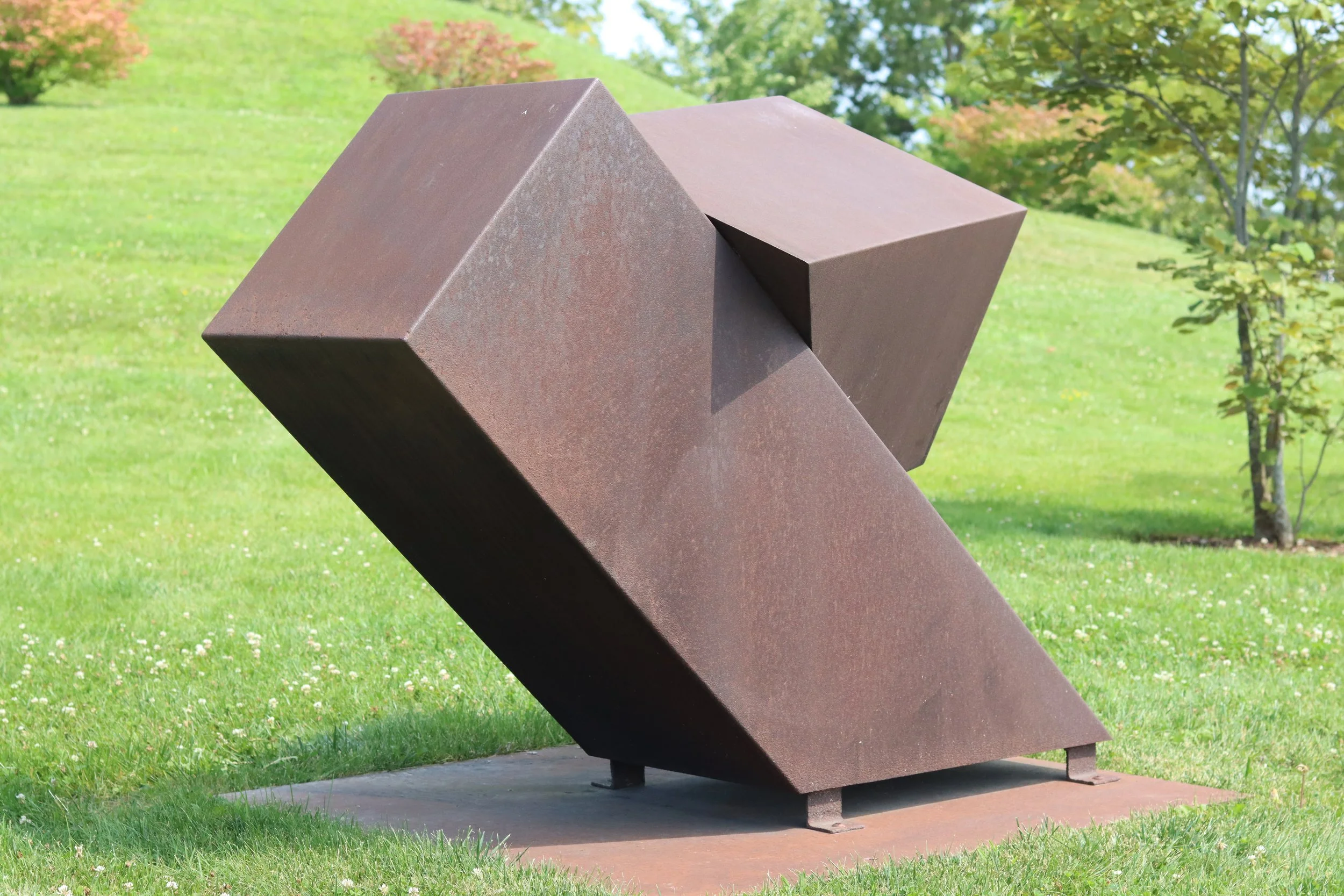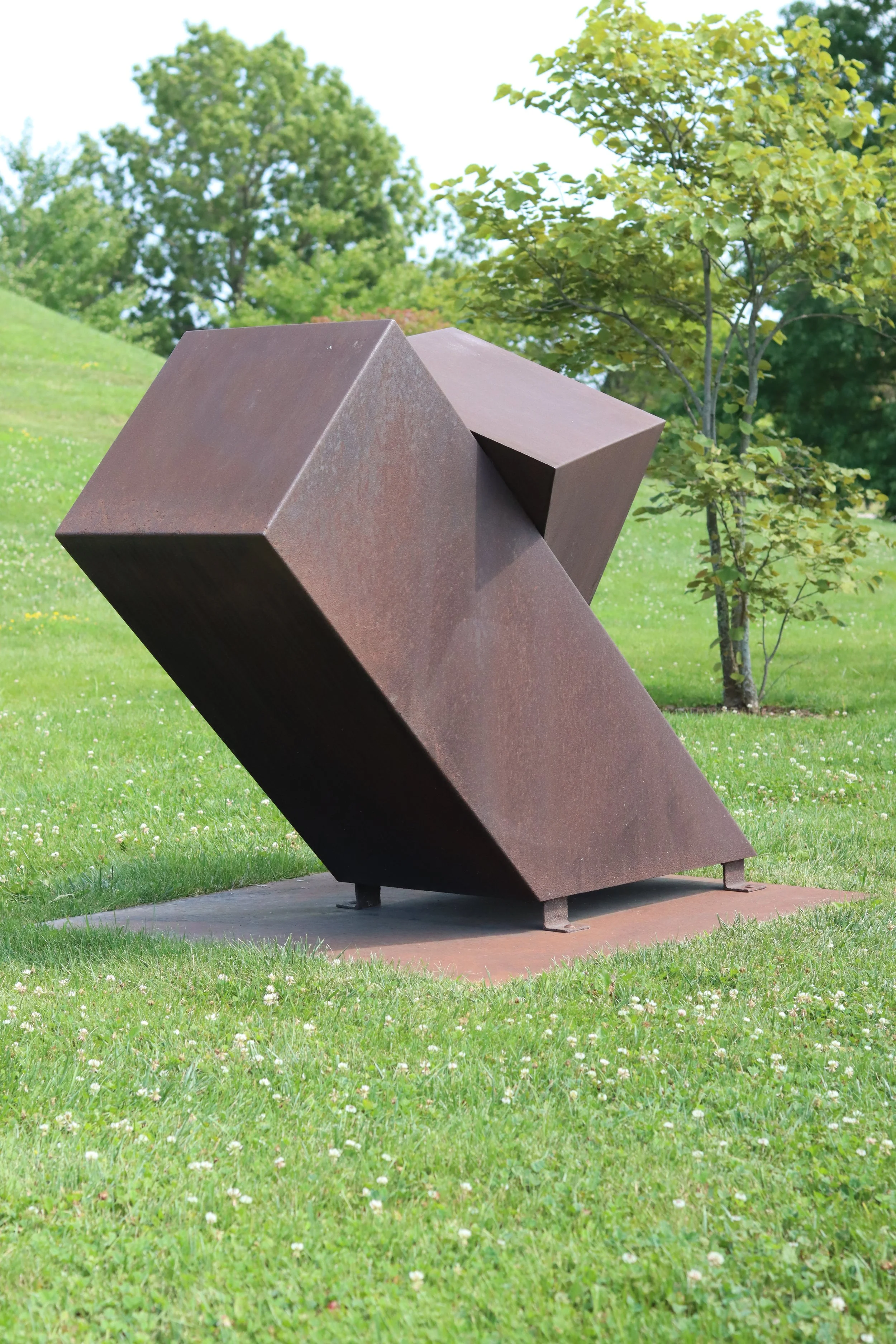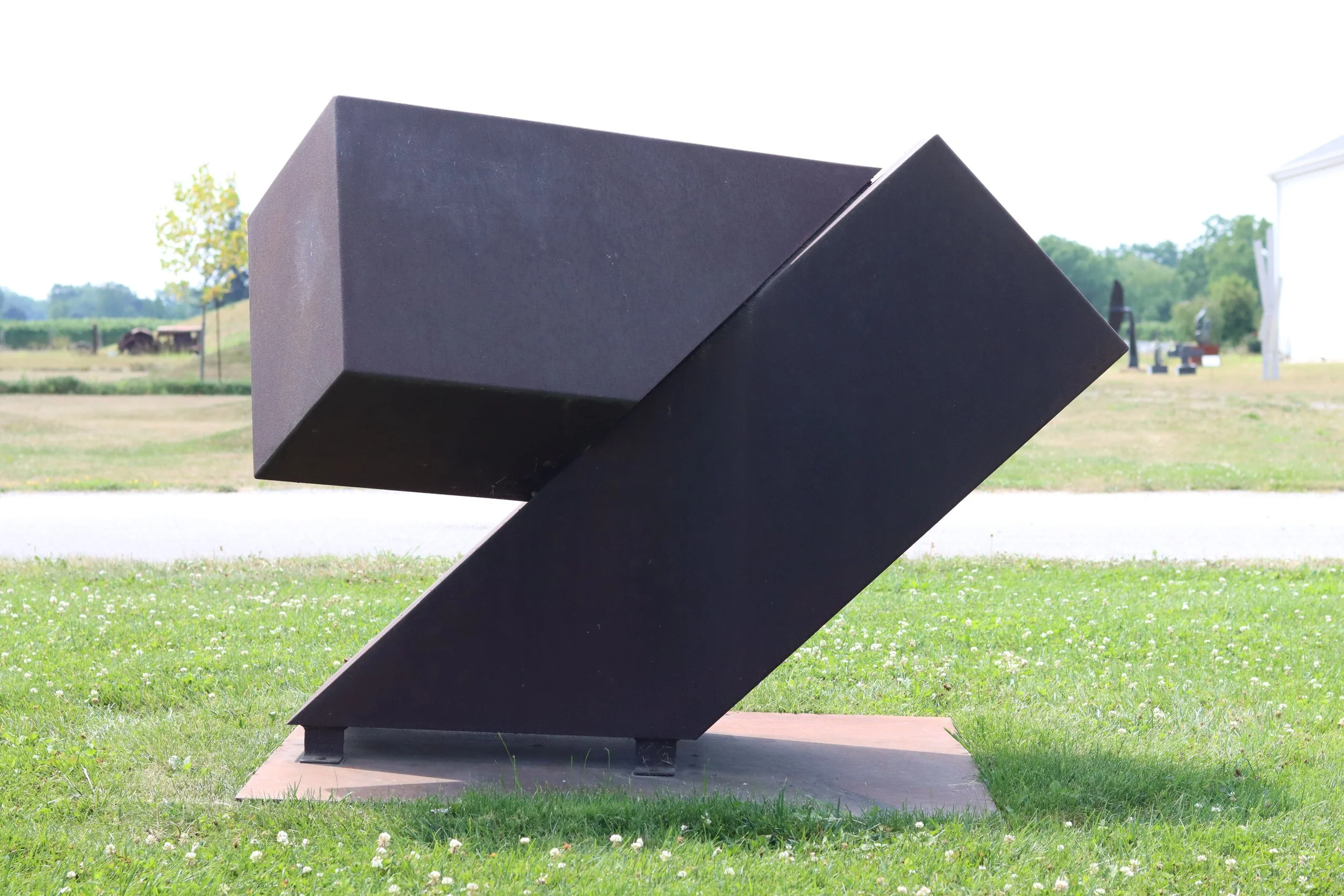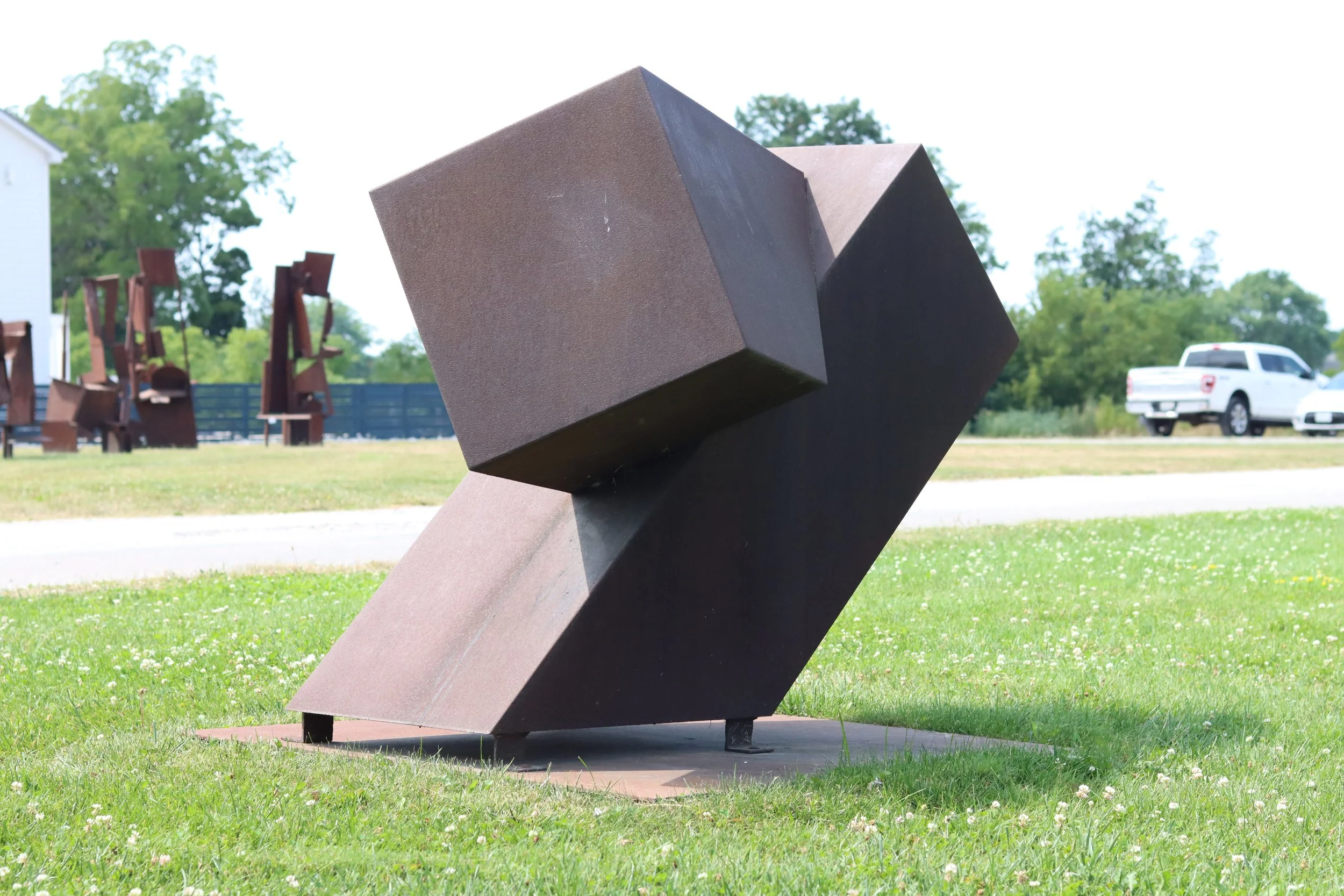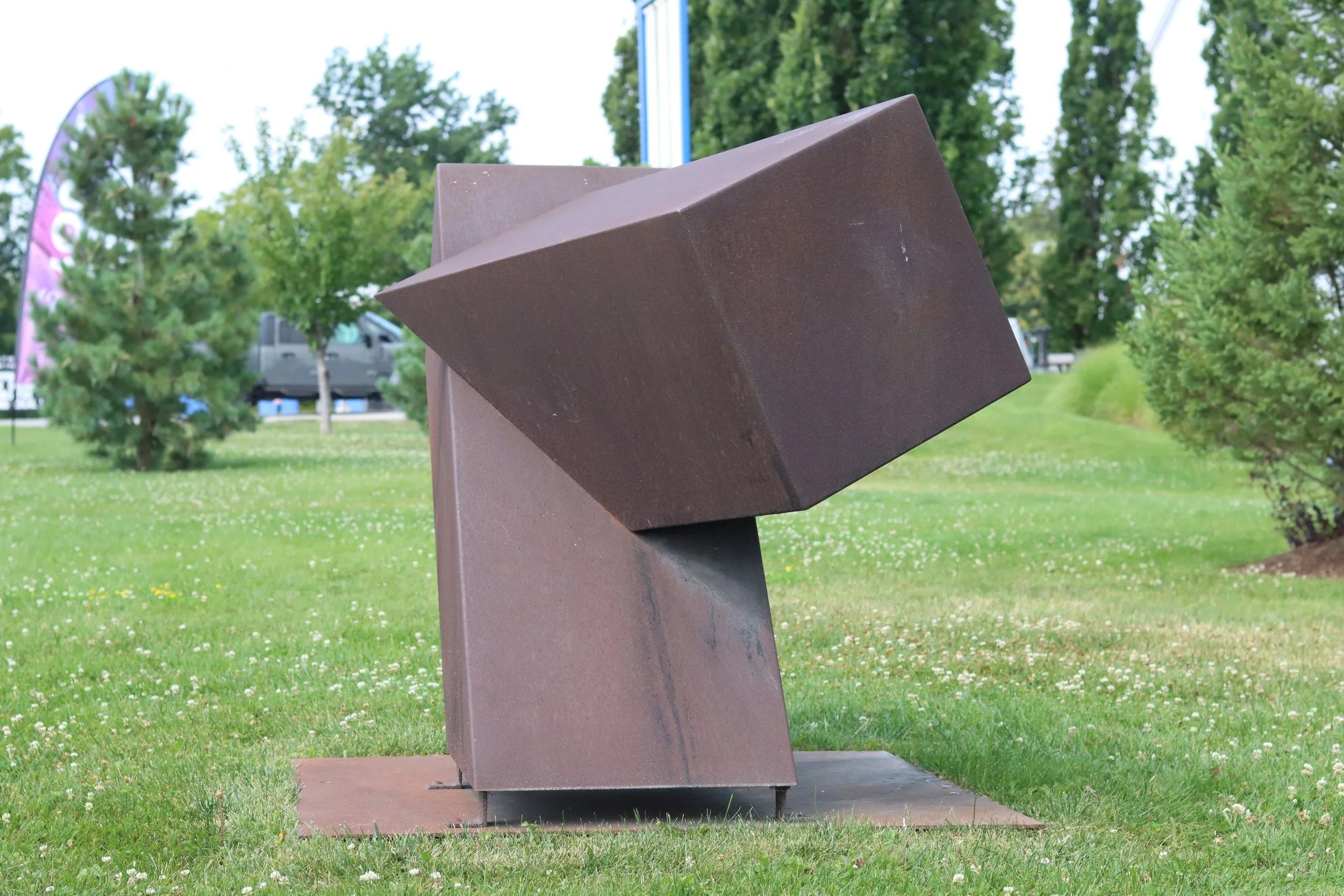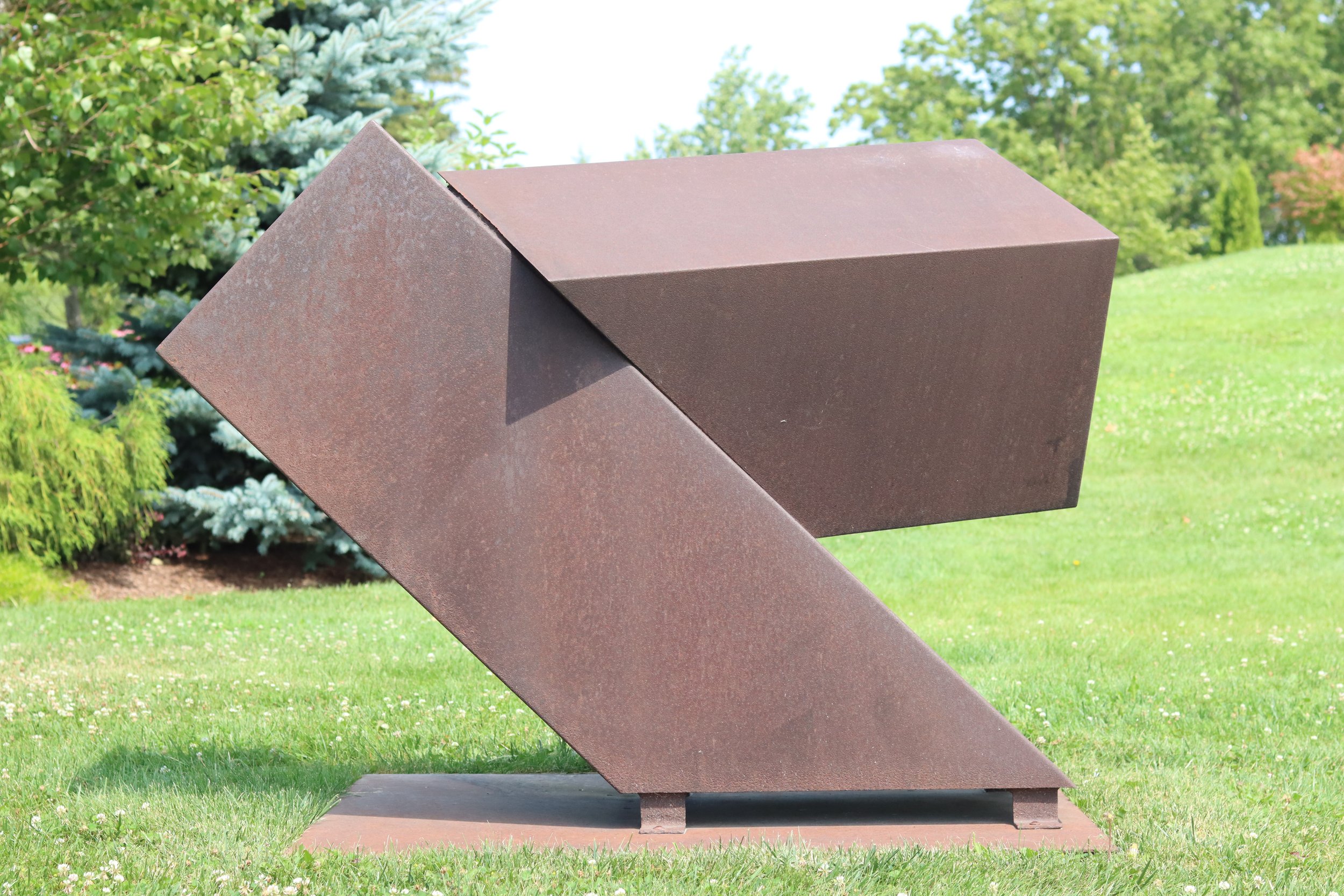
Kosso Eloul was a pioneering Israeli-Canadian sculptor whose monumental brushed-metal forms balance minimalist geometry with a deep sensitivity to the surrounding landscape, creating works that feel as though they emerge naturally from the earth.
Kosso Eloul (1920–1995) was an internationally celebrated Israeli–Canadian sculptor whose monumental geometric works grace public spaces across Canada, the United States, Israel, and beyond. Born in Murom, Russia, and raised in Tel Aviv, Eloul studied under Yitzhak Danziger before moving to the United States in 1939 to train at the School of the Art Institute of Chicago and the Chicago School of Design. There, he studied with influential figures including Frank Lloyd Wright and László Moholy-Nagy, developing a sculptural vocabulary rooted in balance, proportion, and modernist clarity.
After serving in both the Second World War and Israel’s 1948 War of Independence, Eloul resumed his career, representing Israel at the 1959 Venice Biennale and organizing international sculpture symposia. By the 1960s, he had developed his signature style—monumental brushed or painted metal forms, often in twos or threes, precisely balanced to suggest movement, tension, and harmony. These works were conceived to integrate seamlessly with their surroundings, uniting sculpture, landscape, and sky.
Eloul met Canadian painter Rita Letendre in 1962 and, after marrying in 1964, eventually settled in Toronto, where he created more than 40 public sculptures. Iconic works such as Meeting Place (Toronto) and Eternal Flame (Jerusalem) reflect his ability to achieve both architectural presence and poetic resonance. Today, Eloul’s sculptures are held in public and private collections worldwide and remain sought after for their timeless simplicity, commanding form, and deep connection to place.
For details and images, please contact us.

Kosso Eloul. Untited Commission Work, 1987 corten steel 48" x 47" x 64" POR
